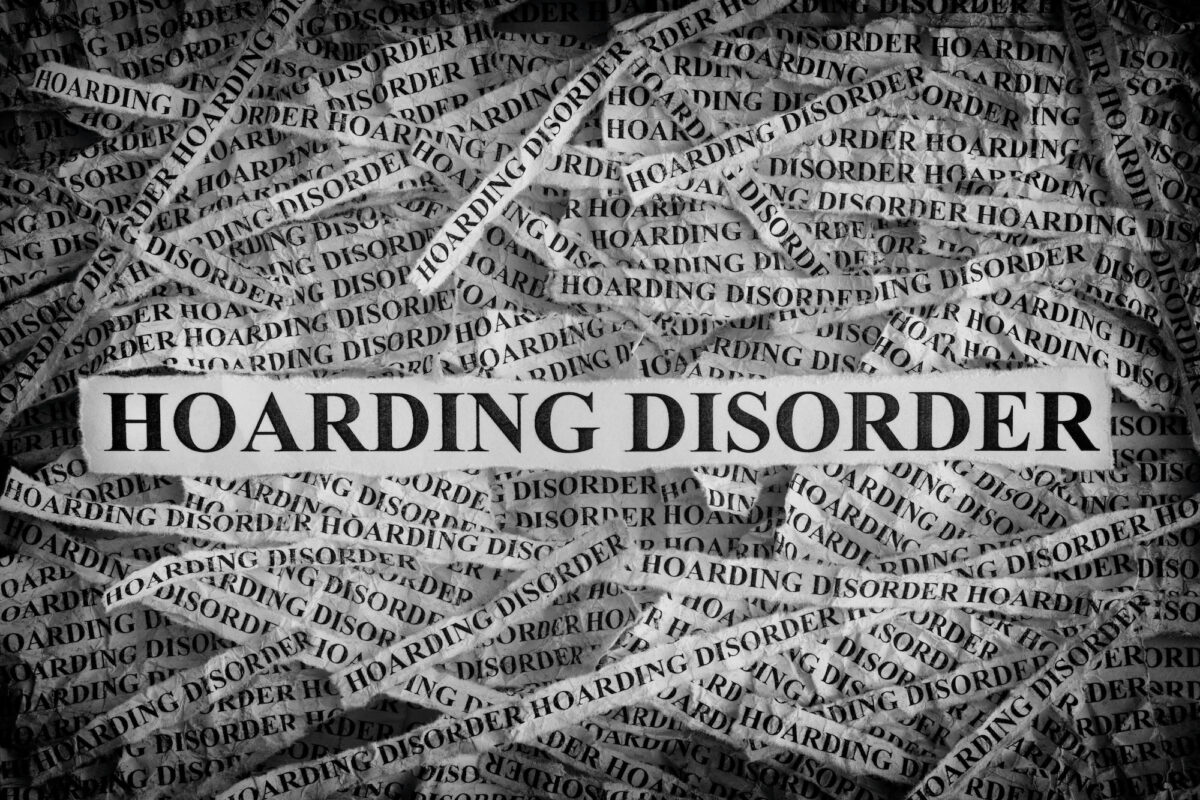Why Do People Hoard?

Last time on the BioClean Team blog we talked about the dangers of a hoarding home, and how that behavior creates not just a cluttered environment but a hazardous one as well. For those who are searching out information about hoarding, a question that no doubt comes up as well is why. Why do people hoard? This time on the BioClean Team blog we’re going to talk a bit about that.
Note: It’s important for us to disclaim – The BioClean Team provides information but it is never a replacement or substitute for medical advice, diagnosis, and treatment from a professional. We do not intend it as such, and it is not implied.
Hoarding Disorder
Hoarding is a disorder that manifests as a difficulty in throwing away or parting with possessions due to a perceived need to save them. Someone with a hoarding disorder will experience real distress at the thought or suggestion of getting rid of the things they are hoarding.
The hoarding that takes place can range from mild to severe, from having little impact on daily life to completely changing the way the person lives. Those who have hoarding disorder frequently don’t see it as a problem, which makes treatment and support difficult.
Causes of Hoarding Disorder
Hoarding is still not deeply understood. It’s not clear what is the cause of it, whether it’s genetic, stressful life events, or changes in brain functions – all of these are being studied as possible root causes for the disorder.
While the cause of it is misunderstood there do seem to be some clear risk factors.
Risk Factors for Hoarding
Hoarding behavior can start to manifest as early as preteens, and generally will get worse with age. That said, hoarding is much more common in older adults than in young adults.
Risk Factors Include:
- Personality
- Family History
- Life Events
- Other Mental Health Disorders
Personality
Many people who have hoarding disorders seem to have an indecisive personality or temperament. Whether this is a symptom or a risk factor isn’t totally clear.
Family History
There seems to be a strong connection between hoarders having a family member who also has the disorder. This might point to a genetic cause for hoarding disorder or an environmental one.
Life Events
Life events, particularly stressful ones can be the inciting incident for some people to develop hoarding disorders. Events such as divorce, death of a loved one, fire, evictions, all of these can cause someone to have problems coping and hoarding as a result.
Mental Health Disorders
Whether these are risk factors for developing a hoarding disorder or a byproduct thereof, other mental health disorders are frequently seen in those who suffer from a hoarding disorder. These include:
- Anxiety disorders
- Depressions
- Attention-deficit/hyperactivity disorder
- Obsessive-compulsive disorders
Can Hoarding Disorder Be Prevented?
Unfortunately, because the disorder is still yet not very understood, there isn’t any way to prevent it from developing. But, like all mental health problems, getting treatment early at the first sign can be a way to prevent the hoarding from getting to an uncontrollable state.
If you have to get help at the first sign of it, what should someone be on the lookout for?
Symptoms of Hoarding Disorder
Hoarding is a private behavior and as such, it can be difficult to spot until the clutter has reached a point where others see it.
Signs and symptoms of hoarding may include:
- Excessively getting new items that aren’t needed and have no space to put them.
- Inability to throw out or part with items.
- Feeling a need to save items, getting upset at the thought of getting rid of them.
- A build up of items and clutter to the point where rooms aren’t able to be used.
- Indecisiveness, procrastination, problems in planning and organizing.
While doctors can’t seem to answer why do people hoard, the disorder is understood enough to have clear signs, symptoms, risk factors, and other details that make treatment possible.
One piece of that is getting professional help in cleaning up. The BioClean Team tackles hoarding homes efficiently, professionally, and compassionately. We understand the struggles the person is going through and we do our best to keep it as calm and easy as possible.
